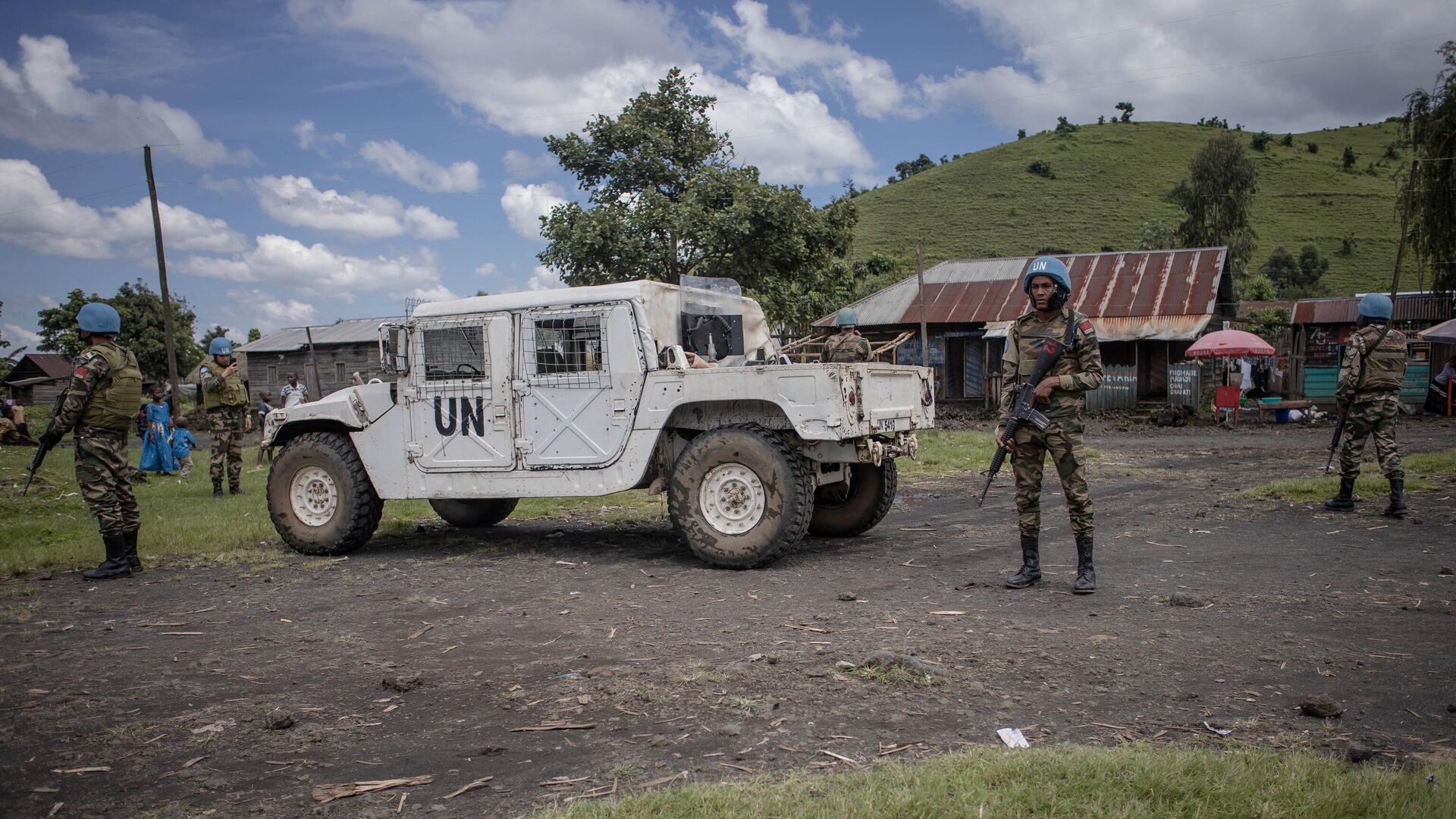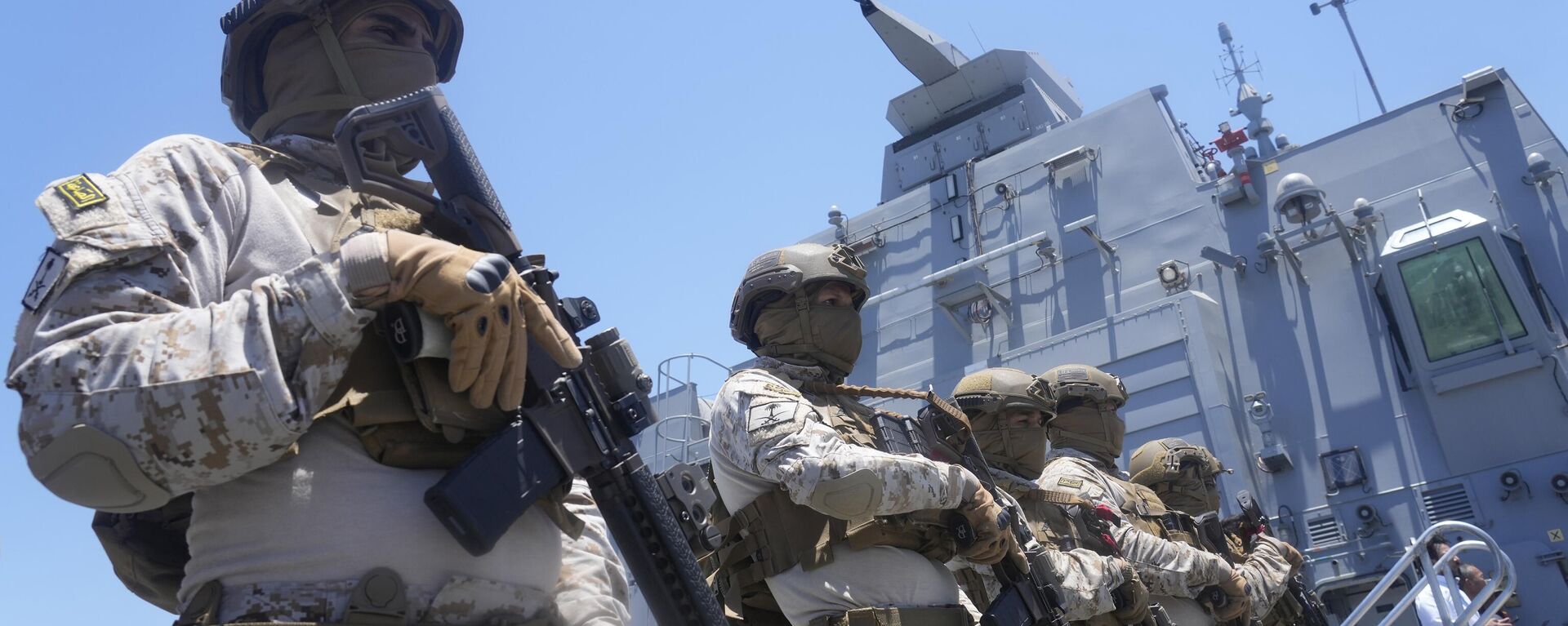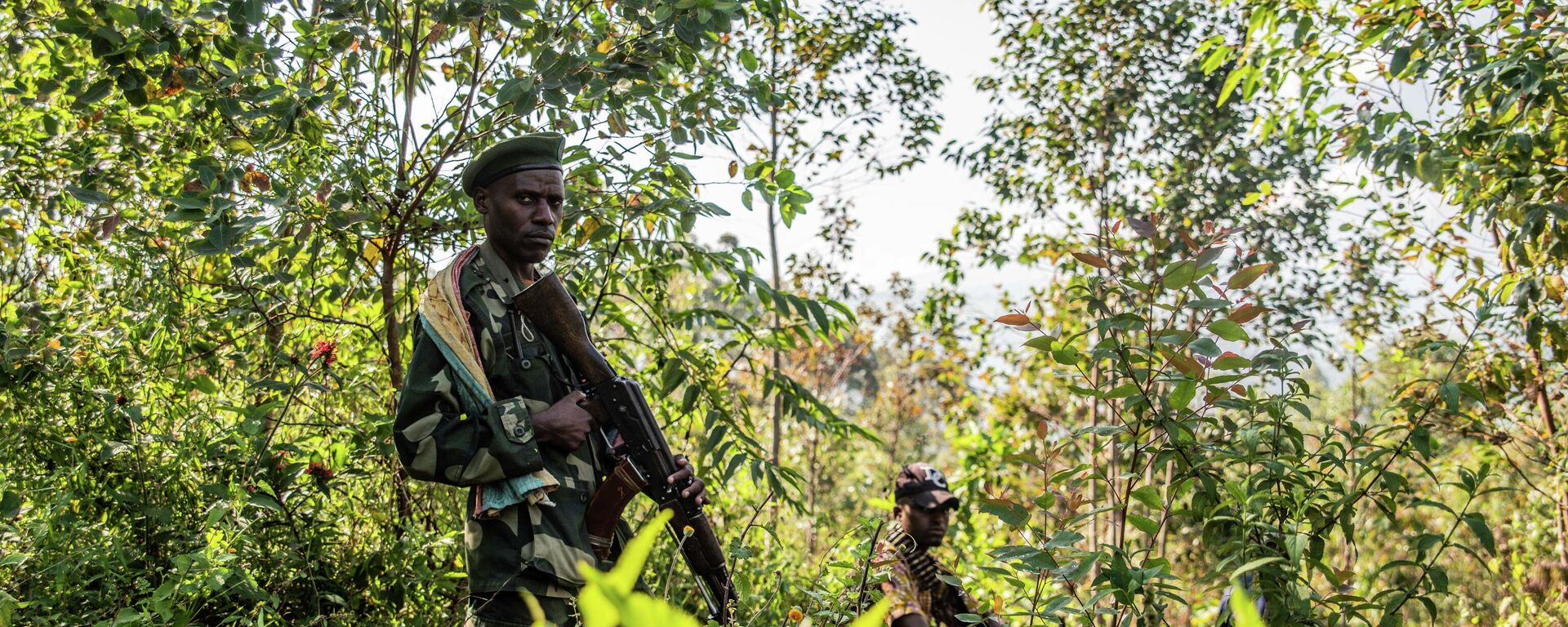https://en.sputniknews.africa/20230530/how-to-avoid-peacekeeping-failures-african-scholar-speaks-out-on-un-peacekeepers-day-1059567192.html
How to Avoid Peacekeeping Failures: African Scholar Speaks Out on UN Peacekeepers' Day
How to Avoid Peacekeeping Failures: African Scholar Speaks Out on UN Peacekeepers' Day
Sputnik Africa
UN peacekeeping ops have witnessed both success and failure, Dr Ismael Buchanan, School Of Economics And Governance, University Of Rwanda told Sputnik.
2023-05-30T09:20+0200
2023-05-30T09:20+0200
2023-05-30T09:20+0200
united nations (un)
peacekeeping
peace
anniversary
rwanda
opinion
monusco
democratic republic of the congo (drc)
reforms
africa insight
https://cdn1.img.sputniknews.africa/img/07e7/05/1d/1059569824_0:0:3071:1728_1920x0_80_0_0_620404faba8101b5c9a974bb092a7fd1.jpg
UN peacekeeping operations have resulted in both success and failure, Dr Ismael Buchanan, Senior Lecturer and chief executive of Rwanda's International Affairs Institute told Sputnik.At the same time, the expert explained that it is quite important to define the goal of an operation so that its success can be properly assessed.As for the failures, Buchanan outlined that the operation in Rwanda between 1993 and 1996 was the UN's least successful mission.The UN mission to Rwanda was meant to help implement the Arusha Accords, signed on 4 August 1993 and designed to put an end to the Rwandan Civil War.From 1 October 1990 until 18 July 1994, fighting broke out between the Rwandan Armed Forces, the nation's government, and the rebel Rwandan Patriotic Front (RPF). The long-running internecine conflict between the Hutu and Tutsi tribes gave rise to the war.According to the expert, the UN mission held in Rwanda did not succeed because the few troops sent to the country were not permitted to use force and this laid the foundation for subsequent UN peacekeeping failures.Buchanan has shone the spotlight on the main reasons UN operations have been unsuccessful, which, according to him, include: failure to act when civilians are under threat, financing troubles, mismanagement issues, conflict of interest between sending states and hosting countries, as well as overly ambitious remits.One of the problems connected to the UN peacekeeping missions mentioned by the expert is human rights abuses imposed by some of the peacekeepers towards ordinary citizens.However, he also mentioned successful missions - such as that in Sierra Leone which took place in the Nineties, and the MONUSCO operation which is still taking place in the Democratic Republic of the Congo (DRC).According to Buchanan, a number of steps should be undertaken to improve results and gain success, including reforms within the UN.Focusing specifically on operations in Africa, he mentioned the so-called concept of "shared responsibility" saying that Africans should think about improving the coordination of the missions, as well as of conflict-prevention mechanisms.
https://en.sputniknews.africa/20230523/western-states-meddling-in-sudan-affairs-at-fault-for-crisis-russian-mission-to-un-says-1059418652.html
https://en.sputniknews.africa/20230526/un-chief-posthumously-awards-russian-peacekeeper-in-dr-congo-1059496412.html
rwanda
democratic republic of the congo (drc)
Sputnik Africa
feedback@sputniknews.com
+74956456601
MIA „Rossiya Segodnya“
2023
News
en_EN
Sputnik Africa
feedback@sputniknews.com
+74956456601
MIA „Rossiya Segodnya“
Sputnik Africa
feedback@sputniknews.com
+74956456601
MIA „Rossiya Segodnya“
un peacekeepers, african continent, international day, united nations, may 29, un peacekeeping missions, un mission in rwanda, monusco mission, central african republic, un reforms
un peacekeepers, african continent, international day, united nations, may 29, un peacekeeping missions, un mission in rwanda, monusco mission, central african republic, un reforms
How to Avoid Peacekeeping Failures: African Scholar Speaks Out on UN Peacekeepers' Day
Since 1945, the United Nations' (UN) peacekeepers have been involved in more than 70 operations, nearly 30 of which have been on the African continent. May 29 marks International Day of United Nations Peacekeepers when people all over the world honor those both past and present who have served in UN peacekeeping missions.
UN peacekeeping operations have resulted in both success and failure, Dr Ismael Buchanan, Senior Lecturer and chief executive of Rwanda's International Affairs Institute told Sputnik.
"We have so many examples where UN troops were sent and did a great job but [in] some [cases] they failed to accomplish their missions," Buchanan said.
At the same time, the expert explained that it is quite important to define the goal of an operation so that its success can be properly assessed.
"Let's not speculate that all missions were inherently bad or UN peacekeeping is a failure, as we have strong empirical evidence for what worked and what did not," he emphasized.
As for the failures, Buchanan
outlined that the operation in Rwanda between 1993 and 1996 was the UN's least successful mission.
"In the case of Rwanda during the genocide against [the] Tutsis, that was the worst operation carried out by a UN peacekeeping mission," the expert stressed.
The UN mission to Rwanda was meant to help implement the Arusha Accords, signed on 4 August 1993 and designed to put an end to the Rwandan Civil War.
From 1 October 1990 until 18 July 1994,
fighting broke out between the Rwandan Armed Forces, the nation's government, and the rebel Rwandan Patriotic Front (RPF). The long-running internecine conflict between the Hutu and Tutsi tribes gave rise to the war.
According to the expert, the UN mission held in Rwanda did not succeed because the few troops sent to the country were not permitted to use force and this laid the foundation for subsequent UN peacekeeping failures.
"Historically, peacekeeping missions have failed when the five permanent members of the UN Security Council tried to do peacekeeping half-heartedly. For example, in Rwanda, the UN sent its troops a bit late with too few soldiers with no mandate to use force," he said. "They wanted just to avoid the costs and risks of intervention, and in this case it created a condition for those peacekeeping failures."
Buchanan has shone the spotlight on the main reasons UN operations have been unsuccessful, which, according to him, include: failure to act when civilians are under threat, financing troubles, mismanagement issues, conflict of interest between sending states and hosting countries, as well as overly ambitious remits.
"So many reports came up and found that peacekeepers globally tried to respond to one out of five cases in which civilians were threatened and the UN, most of the time, had failed to use force in deadly attacks," he outlined.
One of the problems connected to the UN peacekeeping missions mentioned by the expert is human rights abuses imposed by some of the peacekeepers towards ordinary citizens.
"Peacekeeping forces have also been accused of committing human rights abuses, including allegations of sexual abuses (for example, in the DRC). And because of that, not one has resulted in a public conviction, as they have immunity from prosecution," he said.
However, he also mentioned successful missions - such as that in Sierra Leone which took place in the Nineties, and the MONUSCO operation which is still
taking place in the Democratic Republic of the Congo (DRC).
"In Sierra Leone, UNAMSIL was deployed in 1999 to help bring an end to the country’s near decade of civil war through the implementation of the Lome Peace agreement. For me, the mission in that country was a success for the UN in terms of how successfully the disarmament was conducted, [and the] re-integration of ex-combatants [...]. People may say it was imperfect, but it was widely considered to have done most of what it had been established to do. In the Central African Republic, for example and the DRC, those cases are very crucial to carrying out a genuine peace process for the UN," he stressed.
According to Buchanan, a number of steps should be undertaken to improve results and gain success, including reforms within the UN.
"In my opinion, if we need to have a well functioning UN system, there is a need for UN reform with the UN having clear peace mandates with clear political strategies.The UN needs to improve its peacekeepers' safety by increasing more professional training to its troops and also to those civilians in mission areas," he said.
Focusing specifically on operations in Africa, he mentioned the so-called concept of "shared responsibility" saying that Africans should think about improving the coordination of the missions, as well as of conflict-prevention mechanisms.
"If Africans want to manage their conflicts properly on the continent, they need to think of a better solution such as good coordination and mechanisms for preventing and managing conflict," Buchanan said. "Having a good partnership between the UN and Africa does not stop shared responsibility."



